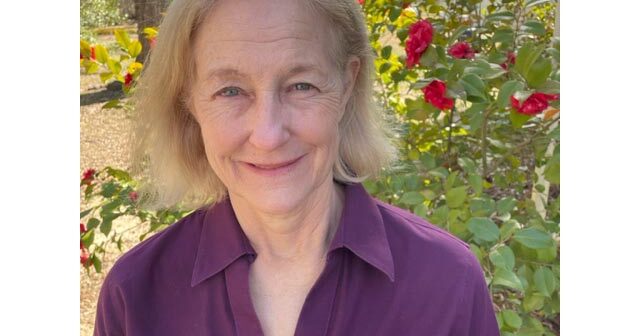The following article was originally posted on the Literary Ladies Guild website.
A few months ago, I was helping pack up my father’s house because, at age ninety-two, he was moving to a retirement home. He had always been a great reader and bibliophile, so we had to go through his library and decide what we would keep and what we would give away. I stumbled on an old paperback of Rosemunde Pilcher’s The Shell Seekers, which must have belonged to Dad’s late girlfriend.
Published in 1987, The Shell Seekers was an international bestseller. I hadn’t read it in decades and had forgotten what a jewel of a book it was – a 500-page tome of a family saga. Rereading it around a recent Christmastime, I couldn’t wait to go upstairs in the evening and delve back into its pages despite being surrounded by family and friends.
The Shell Seekers has beautiful descriptions and many memorable characters. The story reflects the tapestry of life — good times and bad, heartbreak, and passion.
Rosamunde Pilcher (1924 – 2019) was born in Lelant, Cornwall. She began writing at age seven and published her first short story at eighteen. In the World War II years, she served in the Women’s Royal Naval Service, and was posted to Sri Lanka for a time.
In 1946 she married Graham Hope Pilcher, a decorated veteran and textile businessman. They moved to Dundee, Scotland where they lived happily ever after and raised four children. Her son Robin Pilcher ended up being a successful novelist in his own right.
Pilcher’s early novels were published under the pen name Jane Fraser. Within ten years, she was writing under her real name. She was prolific: twenty-five novels and five short story collections. She became an icon and a household name. She won many awards and honors, including an Officer of the Order of the British Empire given by The Queen in 2002.
The Shell Seekers and other novels by Pilcher have been adapted to movies starring actresses like Angela Lansbury and Vanessa Redgrave. One critic said that Pilcher’s books were based on three principles: money, happiness, and a happy ending.
Novelist and onetime president of the Romantic Novelists Association in England, Katie Fforde, said this about Pilcher: “Her houses are full of secrets, families full of lies, beautiful settings, page-turning plots. She changed the face of romantic fiction.”
When I look at the picture of Mrs. Pilcher on the dust jacket of her novel September, I see a grandmotherly figure in a favorite pullover with a smile crinkling her face— the type of person I would have liked to have had a cup of tea with.
The Shell Seekers in brief
The Shell Seekers is the story of Penelope Keeling, an older woman who has had a long and rich life and realizes a painting she owns by her late artist father is worth a lot of money. The children discover this; some are very focused on the money, and of course, this brings dissension.
The book is also written in flashbacks going back to World War II, and has three themes:
- The bohemian life – something Pilcher knew well having grown up in Cornwall where there were a lot of painters in the town of St. Ives,
- The impact of large inheritances on a family – building bridges or tearing people asunder,
- The days before the war in England.
A quote from The Shell Seekers:
“Time had lost its importance. That was one of the good things about getting old: you weren’t perpetually in a hurry. All her life, Penelope had looked after other people but now she had no one to think about but herself. There was time to stop and look, and looking to remember. Visions widened like views seen from the slope of a painfully climbed mountain, and having come so far, it seemed ridiculous not to pause and enjoy them.”
There is a story behind Pilcher’s writing of this novel: In my paperback, there is an introduction to the 10th anniversary edition written by Pilcher. It was 1984, and she had already written several successful books. When Tom Dunne, her editor and publisher from St. Martin’s Press, came to visit Pilcher in Scotland, her children chaffed him, asking why he couldn’t make their mother rich and famous — and them as well.
Good-naturedly, he responded she needed to write a book that merited “advance publicity and global promotion.” Pilcher observed, “He told me I needed to write ‘A big fat novel for women. A good read. Something to get the teeth into.’ And something, above all, that tapped into my life and the experiences of my generation.” Pilcher, at sixty, accepted the challenge and two years later presented her manuscript.
In 2019, The Guardian wrote that The Shell Seekers had sold over 60 million copies by then, and had been translated into multiple languages. Interestingly, Pilcher always had an enormous following in Germany.
Pilcher retired from writing in 2000, at the age of seventy-six, choosing to put her pen down while at the peak of talent, and not fading away from age or ability. She died at ninety-four of a stroke in 2019, surrounded by her loving family.
I read both The Shell Seekers and September (a story about a coming out party in Scotland, pulling characters and stories from all over, including some characters from The Shell Seekers). What I admire about Pilcher’s style is that it is so graspable. Mother Nature plays a huge role in her writing, and her characters are accessible. Even bad guys have a quality about them that a reader can almost like. In the novels I’ve read, just as you think you’ve predicted what will happen, it turns out you are wrong.
I appreciate that there’s no bad language, and sex is suggested rather than described in detail for paragraphs on end. As my late mother once said, “Rosamunde Pilcher wrote books the way they used to be written.” And she was right.
Contributed by Tyler Scott, who has been writing essays and articles since the early 1980s for various magazines and newspapers. In 2014 she published her novel The Excellent Advice of a Few Famous Painters. She lives in Blackstone, Virginia where she and her husband renovated a Queen Anne Revival house and enjoy small town life.



